A Comparative Analysis of Different Viber Solutions for Businesses to Enhance CX
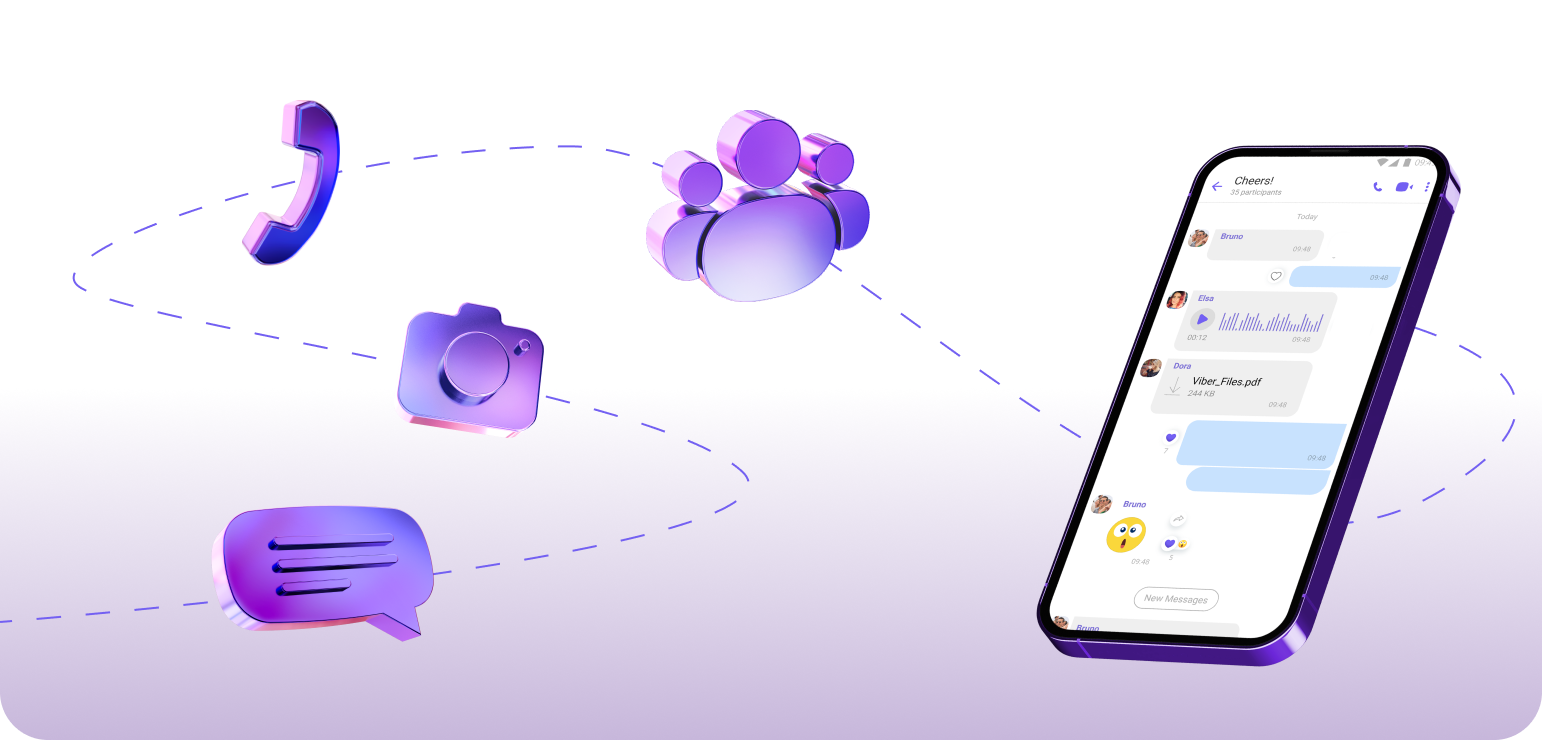
Viber, which started out as a voice calling solution used to keep in touch with family and friends, has evolved over the years to become a popular communication tool for brands looking to level up their customer communication capabilities and boost sales. Today, Viber is highly versatile and boasts of a number of solutions that each serve a purpose and make it hugely appealing for brand-to-customer interactions. Let’s compare some Viber messaging for business solutions, and how they stack up when it comes to improving customer experience.
The Viber app is free to download. It supports different types of rich messaging services such as text, videos, and images along with CTAs. However, there are a number of limitations when it comes to businesses sharing messages with customers.
Limitations
- A broadcast message can be sent only to a maximum of 50 characters. So it’s not a suitable option for larger companies with hundreds or thousands of customers.
- To be able to send customers a bulk message, the sender’s number must be saved on that customer’s contact list. If a customer doesn’t have the brand’s number saved on their phone, the business will not be able to send a bulk message.
- The app does not have any contact organization and management tools, so it’s difficult for businesses to track and manage their broadcast lists. Teams need to create different broadcasts each time they want to send a campaign, and this can be a really tiresome process.
- Customer segmentation is critical for businesses to send targeted messages to customers. The Viber app lacks this ability to segregate customers into different groups.
- It’s very important to send the right message at the most appropriate time of day in order to get the best responses. The Viber app lacks this ability to schedule broadcast messages in advance.
- It also lacks the A/B testing feature.
Viber Business Messages
Viber business messages offer full-service communication with chatbot capabilities for brands looking to communicate better with their customers. This Viber enterprise channel is definitely a more suitable business communication tool compared to the Viber app for a number of reasons. It enables brands to directly message their customer database — the customers do not need to store the brand’s number on their phones unlike with the Viber app. Businesses can initiate conversations, and so can customers. Another key difference between the Viber app and Viber Messaging for Business is that the latter doesn’t come free. Brands need to get in touch with Viber’s official messaging partners in order to be able to access the channel.
They have a number of features that make them highly desirable as a customer connect tool.
1. Verified Business Account
Having an official, verified business account is important for businesses to build trust with audiences online. The Viber business messages channel has a profile page for each business that displays all relevant information such as their logo, phone number, address, and other contact information along with a blue tick implying it’s a verified profile.
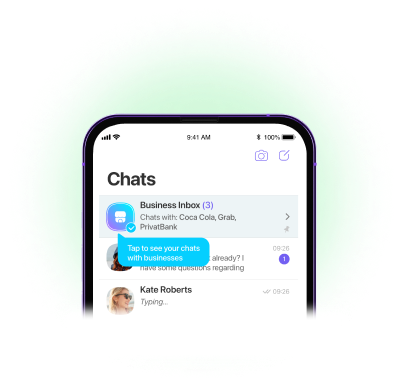
2. No Limits to the Number of Messages Sent
They are highly scalable. Businesses can share bulk messages with any number of customers that they want. This is especially beneficial for large businesses that have a huge customer database.
3. Rich Messaging
Rich messaging services are optionally available. Viber business messages enable customers to share photos, videos, and up to 200 MB files to brands. They can even share URLs with CTAs such as a “Purchase Now” button. Brands can also use creative Viber stickers and branded lenses to increase visibility. Having all these options makes it super convenient for brands and customers to have two-way communication for a variety of reasons.
For example, if a customer wants to share pictures of goods received in a damaged condition, they can just click a picture and upload it on Viber. Similarly, if a furniture brand wants to share an assembling video with customers that have purchased some furniture, they can easily upload it on Viber. Rich messaging is also highly convenient for banks, which can share vital documents with customers over a secure channel.
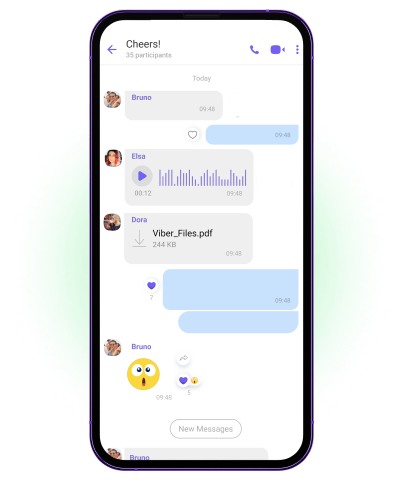
4. Easy Integration With Existing Systems
The Viber for Business channel can be easily integrated with a company’s existing systems such as the CRM. Doing this amplifies Viber’s potential to serve customers seamlessly and quickly. Also, brands can target customers in a more personalized way due to this integration.
5. No Messaging Window Cut-off Time
Most messaging app business accounts block replies after some time using a messaging window and don’t provide read receipts. In this way, Viber Business Accounts are more business-friendly. There is no messaging window and read receipts are provided for sent messages.
6. Great for Analytics Purposes
This messaging service generates a wealth of data that can be analyzed to track performance. For example, once a message has been sent, a number of metrics are available for analysis — the number of pending messages, delivered messages, expired messages, messages that have been clicked on, messages that have been blocked, and many more. In fact, a reason is always provided for all messages that have failed to deliver. These insights help customer service agents to qualify campaigns for better understanding of how well the messages are working and course correct if needed.
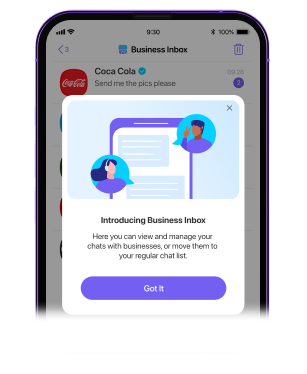
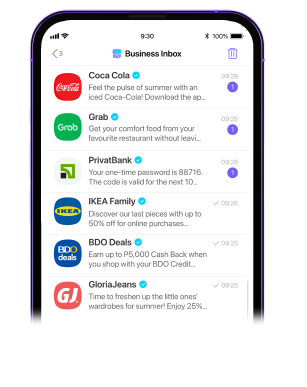
7. Only Delivered Messages Charged
It’s a highly cost-effective option as businesses only need to pay for promotional and transactional messages that have been delivered. Failed messages cost nothing. Conversational messages are charged on a per-session basis.
The reason for every failed delivery is always mentioned. Also, a time limit is set for messages containing sensitive information, and if it’s not delivered within that limit, the sender is not charged.
8. Fallback Options Available in Case Messages Fail to Deliver
The channel comes with automated fallback options in case a Viber message is not delivered — brands can set a cascade, so in case a Viber message fails to deliver, it can be delivered via another selected channel such as email or SMS. This ensures guaranteed delivery.
9. Secure Pathways
Business messages often contain sensitive information, so the importance of security is paramount, especially in a world fraught with cybercrimes. Viber takes care to ensure there are no breaches – it never stores messages on its own servers and all connections are secure and HTTPS, which invokes a sense of trust. Viber also does not sell any customer information.
10. Scheduling Possible
This service comes with a number of scheduling options that enable teams to schedule campaigns on a daily, weekly, or monthly basis.
Additional Automation Capabilities – Businesses can automate their communication not only with bulk messages but also with chatbots for Viber to perform a variety of tasks, from sending welcome, thank you and away messages to sharing abandoned cart reminders, recommending products, answering routine queries, and so on.
Clearly, while Viber app has its own value, especially for small businesses, Viber business messages is undoubtedly a much more suitable option for medium and large businesses when it comes to managing their customer connections.




![[photo]](https://edna.io/wp-content/themes/edna/images/authors/paula-s.jpg)
![[icon]](https://edna.io/wp-content/themes/edna/images/authors/ico-linkedin.svg)